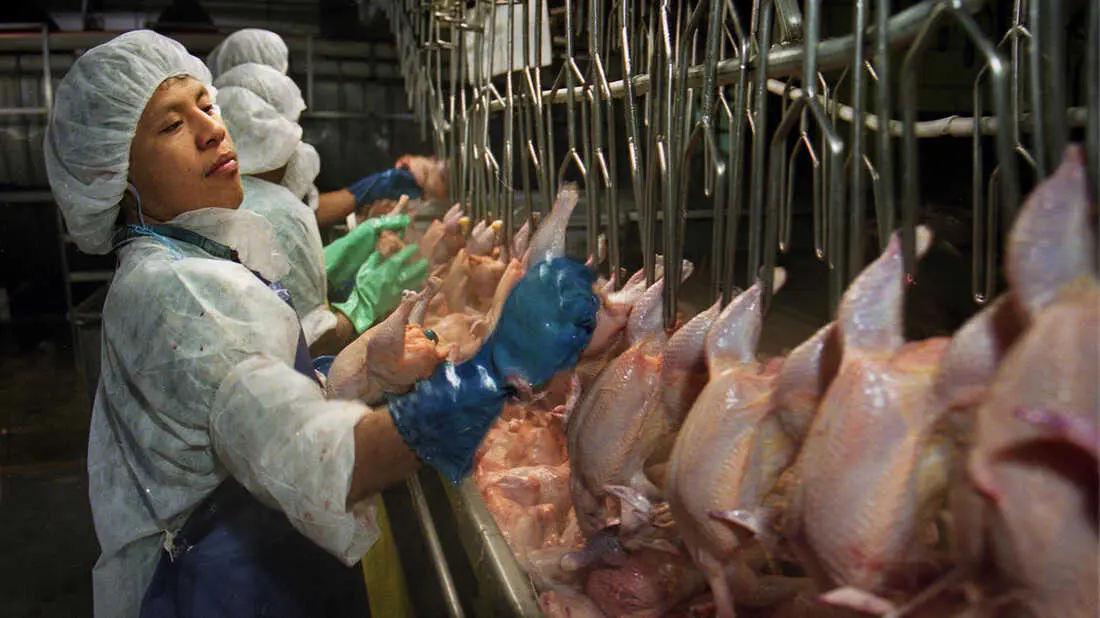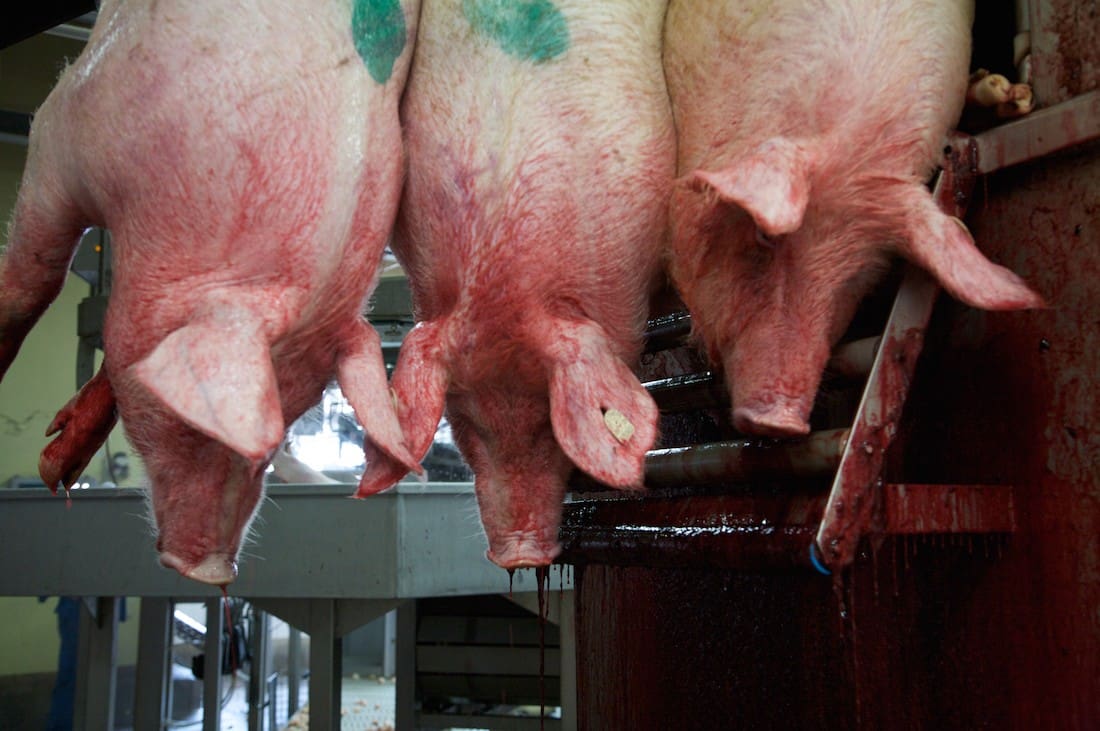Animal cruelty in factory farms is a pressing issue with deep psychological repercussions for animals, workers, and society. Behind the scenes of industrialised agriculture, countless animals endure chronic stress, abuse, and deprivation—leaving them traumatised and emotionally scarred. Workers in these environments often grapple with moral distress and compassion fatigue as they navigate the grim realities of their roles. The ripple effects extend further, fostering societal desensitisation to violence while raising critical ethical concerns about humanity’s treatment of sentient beings. This article explores the hidden mental health impacts tied to factory farming practices, urging reflection on how we can prioritise empathy and sustainability in shaping a more humane future
Animal cruelty in factory farms is a topic that has gained significant attention in recent years. With the rise of industrialized agriculture and the demand for cheap, mass-produced meat, the conditions in which farm animals are raised have come under scrutiny. The inhumane treatment of animals in factory farms not only raises ethical concerns, but also has significant psychological effects on both the animals and the workers. The harsh and crowded living conditions, routine physical and emotional abuse, and lack of social interaction can have a detrimental impact on the mental well-being of animals. Similarly, the workers who are tasked with carrying out these cruel practices often experience high levels of stress, moral distress, and compassion fatigue. This article aims to explore the psychological effects of animal cruelty in factory farms, shedding light on the hidden consequences of the mass production of meat and the toll it takes on both animals and humans. By understanding these effects, we can better evaluate the ethical and moral implications of factory farming and work towards creating a more humane and sustainable agricultural system.
Decreased empathy in consumers
In recent years, there has been a concerning trend of decreased empathy in consumers when it comes to the psychological effects of animal cruelty in factory farms. This shift can be attributed to various factors, including the detachment between consumers and the sources of their food. With the rise of industrialized farming practices, the distance between consumers and the animals they consume has grown, making it easier for individuals to disassociate themselves from the ethical consequences of their choices. Additionally, the constant exposure to marketing tactics that focus on convenience and affordability rather than animal welfare has further desensitized consumers to the suffering endured by animals in factory farming. This diminished empathy not only perpetuates the cycle of cruelty but also hinders progress towards implementing more ethical and sustainable practices within the industry.
Mental health consequences for workers
The psychological effects of animal cruelty in factory farms extend beyond the animals themselves and also impact the workers within these environments. The nature of factory farming often involves repetitive and physically demanding tasks, along with exposure to distressing scenes of animal suffering. This can lead to heightened levels of stress, anxiety, and even depression among workers. The constant pressure to meet production quotas and disregard for animal welfare can create a dehumanizing work environment, further contributing to the mental health challenges faced by these workers. Additionally, the lack of support and resources for addressing mental health concerns within the industry can exacerbate these issues, resulting in long-term negative effects on the well-being of the workers involved. It is crucial to recognize and address the mental health consequences faced by workers in factory farms in order to promote a more compassionate and sustainable industry overall.

Desensitization to violence and suffering
One concerning aspect that arises from the exposure to animal cruelty in factory farms is the potential desensitization to violence and suffering. The repeated exposure to distressing scenes of animal abuse and neglect can have a numbing effect on individuals, gradually reducing their emotional responsiveness to such acts. This desensitization process may occur as a coping mechanism, as a means to protect oneself from the overwhelming emotional impact of witnessing and participating in acts of cruelty. However, it is important to acknowledge that this desensitization can extend beyond the workplace environment and permeate into other aspects of an individual’s life. This can have detrimental consequences not only on the individual’s own empathy and emotional well-being but also on their relationships and societal attitudes towards violence and suffering. Consequently, addressing and mitigating the desensitization to violence and suffering within the context of factory farming is crucial in order to promote a more compassionate and empathetic society.
Ethical implications for society
The ethical implications stemming from the pervasive animal cruelty in factory farms extend far beyond the immediate psychological effects. The mistreatment and exploitation of animals raise profound moral questions about our responsibilities towards other sentient beings and the broader impact on society. By condoning and participating in practices that prioritize profit and efficiency over ethical considerations, we risk eroding our collective moral compass. This normalization of cruelty can shape societal attitudes, potentially fostering a culture that devalues compassion and empathy. Moreover, the industrialized nature of factory farming perpetuates a cycle of environmental degradation, contributing to climate change, deforestation, and biodiversity loss. Therefore, it is imperative that we critically examine and address the ethical implications of supporting an industry that fails to prioritize the well-being and dignity of animals, as well as the long-term consequences for both human and planetary health.
Trauma and PTSD in animals
Trauma and Post-Traumatic Stress Disorder (PTSD) are not limited to humans; they can also affect animals, including those within the confines of factory farms. Animals exposed to chronic stress, abuse, and neglect in these environments can experience long-lasting psychological effects similar to PTSD in humans. This can manifest in various behavioral changes, including heightened fear and anxiety, social withdrawal, aggression, and hyper-vigilance. These symptoms are indicative of the profound psychological distress these animals endure as a result of their traumatic experiences. While scientific research on trauma and PTSD in animals is still evolving, it is increasingly evident that the suffering inflicted upon animals in factory farms goes beyond physical harm, leaving lasting psychological scars. Acknowledging and addressing the psychological effects of animal cruelty is imperative in our pursuit of a more compassionate and ethical society.

Economic motivations behind cruelty
Factors such as economic motivations play a significant role in perpetuating cruelty within the context of factory farms. The primary objective of these operations is often focused on maximizing profits and minimizing costs. As a result, animals are often subjected to deplorable living conditions, overcrowding, and inhumane treatment, all of which can be directly attributed to the drive for increased production efficiency and reduced expenses. In the pursuit of economic gains, the well-being and dignity of these animals are compromised, leading to a systemic disregard for their physical and psychological welfare. The prioritization of financial interests over ethical considerations further perpetuates a cycle of cruelty within the industry, highlighting the need for comprehensive reforms and a shift towards more compassionate and sustainable practices.
Long-term effects on the environment
The intensive nature of factory farming and the practices associated with it also have significant long-term effects on the environment. These operations contribute to deforestation, as vast areas of land are cleared to make way for large-scale animal agriculture. The removal of trees not only diminishes biodiversity but also reduces the capacity of forests to absorb carbon dioxide, a major greenhouse gas contributing to climate change. Additionally, factory farms generate substantial amounts of waste, including manure and chemical runoff, which can contaminate water sources and contribute to water pollution. The excessive use of antibiotics and hormones in these facilities also poses a risk to ecosystems, as these substances can seep into the soil and waterways, disrupting delicate ecological balances. Overall, the long-term environmental consequences of factory farming highlight the urgent need for sustainable and environmentally-conscious practices in the agricultural industry.
In conclusion, it is important to recognize and address the psychological effects of animal cruelty in factory farms. Not only is it a moral and ethical issue, but it also has a significant impact on the mental well-being of both the animals and the workers involved. By acknowledging and addressing these effects, we can work towards creating a more humane and sustainable food system for all beings involved. It is our responsibility to not turn a blind eye to this issue and take action towards creating a better future for both animals and humans.
FAQ
How does witnessing or participating in animal cruelty in factory farms impact the mental health of workers?
Witnessing or participating in animal cruelty in factory farms can have a detrimental impact on the mental health of workers. The repetitive and graphic nature of the tasks involved in such environments can lead to feelings of guilt, distress, and moral conflict. The cognitive dissonance between personal values and the actions required in these jobs can cause significant psychological distress and lead to conditions such as depression, anxiety, and post-traumatic stress disorder. Additionally, the desensitization to suffering and violence can negatively affect empathy and compassion, further contributing to mental health issues. The psychological toll of participating in animal cruelty highlights the need for improved working conditions and ethical practices in factory farming.
What are the long-term psychological effects on individuals who are exposed to animal cruelty in factory farms?
Individuals exposed to animal cruelty in factory farms may experience long-term psychological effects such as increased empathy towards animals, feelings of helplessness or guilt, increased risk of developing depression or anxiety, and a potential desensitization to violence. Witnessing or participating in acts of animal cruelty can have a profound impact on individuals’ mental well-being, as it challenges their moral values and raises ethical concerns. The long-term psychological effects may vary from person to person, but it is clear that exposure to animal cruelty in factory farms can have a lasting impact on individuals’ emotional and psychological health.
How does the psychological trauma experienced by animals in factory farms affect their behavior and overall well-being?
The psychological trauma experienced by animals in factory farms has a significant impact on their behavior and overall well-being. Animals in these environments are often subjected to overcrowding, confinement, and unnatural living conditions, leading to chronic stress, fear, and anxiety. This can result in abnormal behaviors such as aggression, self-harm, and repetitive movements. The trauma also compromises their immune systems, making them more susceptible to diseases and infections. Additionally, the lack of mental stimulation and opportunities for natural behaviors further diminishes their well-being. Ultimately, the psychological trauma endured by animals in factory farms profoundly affects their physical and mental health, perpetuating a cycle of suffering.
What are the potential psychological consequences for consumers who are aware of the animal cruelty in factory farms but continue to support the industry?
Consumers who are aware of the animal cruelty in factory farms but continue to support the industry may experience cognitive dissonance, which is the psychological discomfort that arises from holding conflicting beliefs or values. This can lead to feelings of guilt, shame, and moral conflict. It may also result in increased stress and anxiety as individuals grapple with the ethical implications of their choices. Additionally, there may be a disconnect between their values and actions, which can negatively impact their self-esteem and overall psychological well-being.
Can the psychological effects of animal cruelty in factory farms extend beyond the individuals directly involved, impacting society as a whole?
Yes, the psychological effects of animal cruelty in factory farms can extend beyond the individuals directly involved and impact society as a whole. Witnessing or learning about animal cruelty can evoke feelings of distress, sadness, and anger in people, leading to increased empathy and concerns for animal welfare. This can translate into changes in behavior, such as adopting cruelty-free practices, supporting animal rights organizations, or advocating for stricter regulations. Moreover, studies have shown a link between animal cruelty and violence towards humans, suggesting that addressing and preventing animal cruelty can have broader implications for societal well-being.



